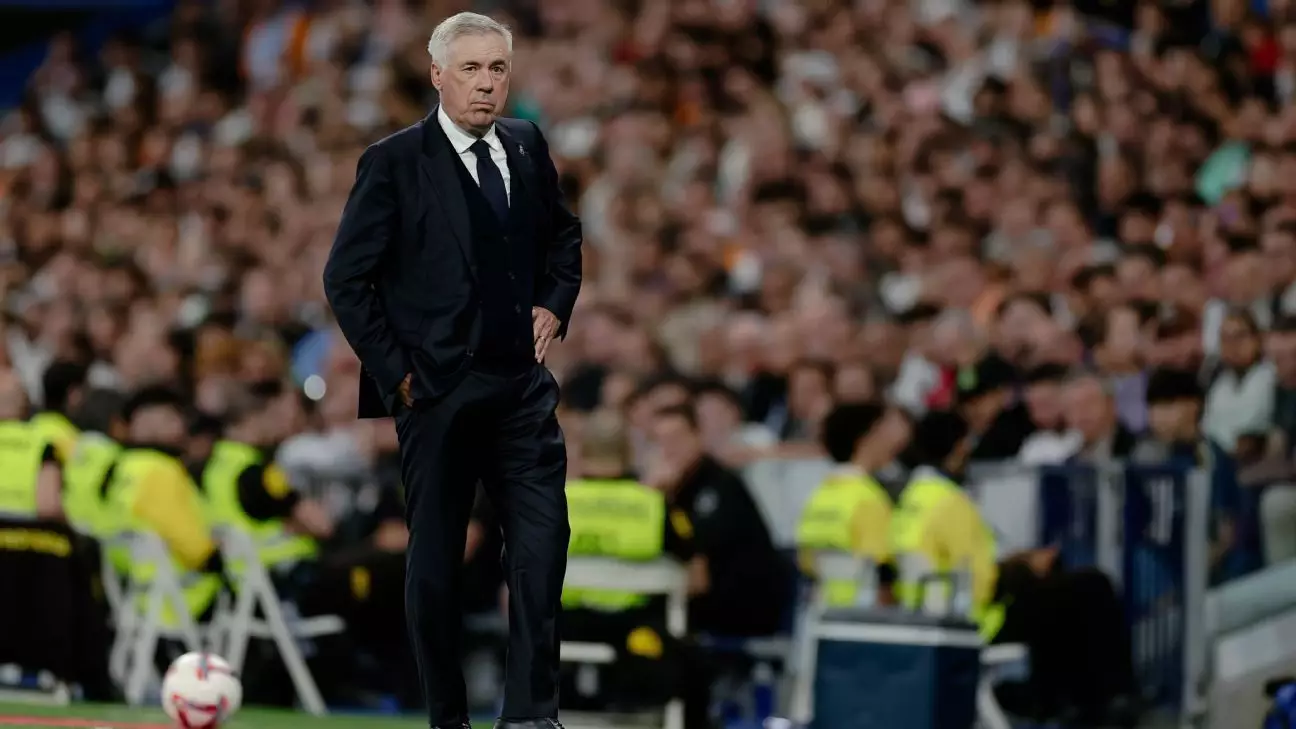Resilience Amidst Tragedy: The Response of Spanish Football to Valencia’s Floods
In October 2023, Valencia faced a heart-wrenching disaster as flash floods swept through the region, claiming the lives of at least 217 individuals. This tragic event left a deep scar on the community, and as is often the case, the world of football found itself in a delicate position, trying to balance the joy of sport with the gravity of human loss. As the community struggled to come to terms with what had happened, there was a call for action from all corners, including some of the most respected figures in football. Carlo Ancelotti, Real Madrid’s coach, was one such voice advocating for compassion over competition.
For many in Spain and beyond, football is more than just a game; it’s a thread that weaves communities together. It’s about shared experiences and collective spirit. In times of tragedy, the question arises: should the show go on? The decision to continue or halt matches in light of the disaster was not straightforward. Ancelotti’s heartfelt response reflected this complexity, emphasizing that sometimes empathy must take precedence over entertainment. His call to suspend all matches was not just about respecting those affected but also about acknowledging the broader role sports play in society.
Key Takeaways
- The debate over postponing matches highlights football’s deep ties to community well-being.
- Football can serve as a platform for both celebration and solidarity during difficult times.
- Empathy and humanity should guide decisions in sports, especially during crises.
The Postponement of Matches: A Necessary Decision?
As news of the floods spread, La Liga made a controversial decision to postpone matches involving Valencia and Villarreal while allowing other fixtures to proceed. This sparked a debate on whether it was appropriate to continue sporting events amidst such tragedy. Ancelotti’s view that all football should have been paused resonated with many who saw this as an opportunity to reflect on football’s societal responsibilities. His stance wasn’t just about halting play; it was an appeal for recognizing that football is deeply intertwined with community life and should honor those connections in times of grief.

Despite the ongoing games, La Liga teamed up with the Red Cross to launch fundraising efforts for flood victims. This dual approach—continuing games while aiding recovery—presented a complex narrative. Football is typically seen as a joyful escape from life’s challenges, but as Ancelotti pointed out, there are times when celebrating feels inappropriate. His words underscored an important truth: sports can be both a refuge and a responsibility. In moments of public mourning, it’s crucial to assess whether our actions align with our values of empathy and respect.
The discussion around these matches brought various voices into the conversation, including Atlético Madrid’s Diego Simeone. Like Ancelotti, Simeone argued against continuing games during such sorrowful times. This collective sentiment within the coaching community highlighted an evolving consciousness about sports’ influence and obligations beyond mere competition. By prioritizing empathy over schedules, these leaders sent a powerful message that reflects the true spirit of sportsmanship—valuing humanity above victories.

Players echoed their coaches’ sentiments too. Lucas Vázquez spoke candidly about how professionals often feel constrained by decisions made at higher levels, revealing the tension between tactical imperatives and ethical considerations. This sheds light on the hierarchical nature of sports management where athlete welfare can sometimes clash with organizational goals. It’s a reminder that athletes are not just performers but people who also grapple with external events that impact their mental health and performance.
Mental Preparedness in Times of Crisis
As Real Madrid prepared for their Champions League match against AC Milan later that week, Ancelotti acknowledged how challenging it was for his players to focus under such circumstances. He admitted that “Your head isn’t in your work,” highlighting an often overlooked aspect of sports—the mental toll tragedies can take on athletes. When communities suffer, so do their spirits, making it difficult for players to concentrate fully on their preparations or perform at their peak level during significant matches.
This situation speaks volumes about mental health in sports where external factors can profoundly affect performance. Understanding these dynamics is essential in fostering environments where athletes feel supported emotionally as well as physically. It also urges us all—fans and stakeholders alike—to consider how we might better support individuals whose livelihoods are so closely tied to public perception and expectation.
Final Thoughts
The floods in Valencia have prompted critical reflection on sport’s role within society during times of crisis. Figures like Ancelotti have demonstrated that sporting integrity involves knowing when community solidarity should eclipse competition. The collective stance from players and coaches alike against continuing play amid tragedy sends out a clear message: our values must anchor us when faced with choices about life versus leisure.
Ultimately what emerges from these discussions is an appeal for humanity; after all isn’t supporting each other amidst sorrow more vital than any game? As we move forward let us remember how interconnected our lives truly are—and ensure those bonds remain strong enough even amid adversity because resilience isn’t just about bouncing back—it’s also about standing together through every storm life throws our way.
Valencia floods Spanish football Carlo Ancelotti
mental health in sports community solidarity


Leave a Reply